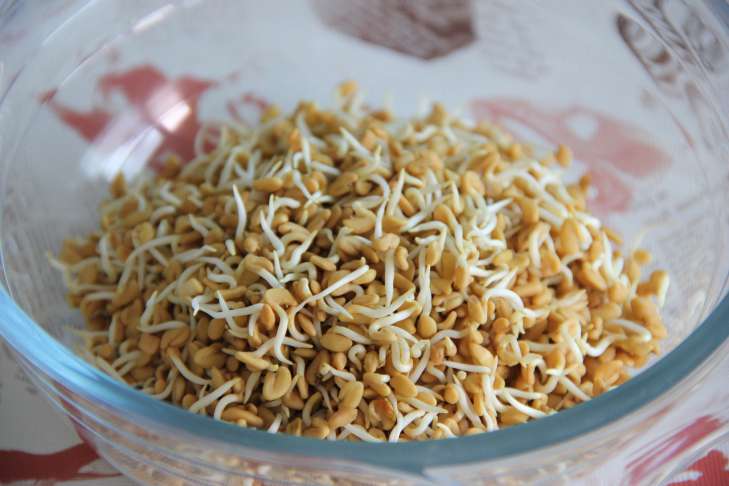Fenugreek seeds acquire a slightly nutty and sweet flavor when roasted in a hot, dry pan or in oil.
Its aroma complements many vegetable and meat recipes.
What are the benefits of fenugreek
The chemical composition of fenugreek seeds includes: rutin, vitamins A, B1, B2, B5, B6, B9, C and PP, as well as potassium, calcium, magnesium, zinc, selenium, copper and manganese, iron, phosphorus and sodium.
Fenugreek seeds contain: steroid saponins, phytosterols, flavonoids, mucous, tannins and bitter substances, galactomannan, rutin, enzymes, essential oils, fatty oil, proteins, tannins, vitamins (A, C1, B1, B2, nicotinic acid (vitamin PP ), B9 (folic acid) alkaloid trigonelline; micro- and macroelements.
Fenugreek seeds contain diosgenin, which acts as an estrogen in the body.

Medicinal preparations from fenugreek have anti-inflammatory effects, stimulate contraction of the muscular system of the uterus, stabilize blood sugar levels, and stimulate sexual activity.
How to eat fenugreek seeds
Brew one level tablespoon of seeds in 200 ml of boiling water, leave for 10-15 minutes, strain after cooling, consume during the day in its pure form, diluted with water or milk.
Where to add fenugreek seeds
This aromatic spice is added to vegetable dishes, rice, sauces, and dressings.
Shambhala is great for soups - it adds a rich and appetizing aroma.
Fenugreek is added to seasoning mixtures, such as curry, suneli hops and other seasonings as a digestive spice.
We previously talked about the health benefits of macadamia nuts.









